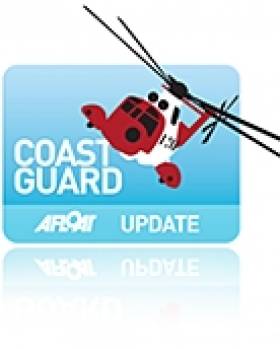Displaying items by tag: Patrick Williamson
Speaking today, Minister for Transport Leo Varadkar TD said: This invitation to Achill Coast Guard Unit is an acknowledgement of the life-saving work that this Unit (and indeed all our Volunteer Units) around the country are engaged in every day of the year. Every day, these people selflessly risk their own lives to save others in all weathers, day and night, often in very dangerous conditions. This invitation is in recognition of their work and is an indication of the high esteem in which our Coast Guard Units are held internationally."
Achill Island Coast Guard Unit is made up of 24 volunteers who carry pagers and are available on 15 minutes' notice day and night 365 days a year. In August 2009 the Unit took part in a search and rescue operation for a person who fell into the Atlantic Ocean while fishing off the rocks near Achill Island. In response to this incident, the Achill Coast Guard rescue boat was launched together with local RNLI Ballyglass Unit and the Sligo Coast Guard helicopter during very hazardous weather conditions. The casualty (a Mr. Patrick Williamson) who amazingly stayed afloat swimming in high seas for over an hour was successfully rescued and spent 5 days in intensive care following his ordeal in the sea.
On making a full recovery, Mr. Williamson nominated Achill Island Coast Guard Unit for a National Courage Award. Previous recipients of this honour include the Irish Army (for peacekeeping duties) and former Taoiseach Mr. Bertie Ahern (for his involvement in the peace talks in Northern Ireland).
Director of the Irish Coast Guard, Mr. Chris Reynolds today said: "The Achill Coast Guard Unit is well-deserving of this honour and I congratulate them on being part of this special event. It is a great recognition of the standard and quality of service the Coast Guard provide and I thank Mr. Williamson along with all who helped make this happen for inviting them to take part in this special event."





























































